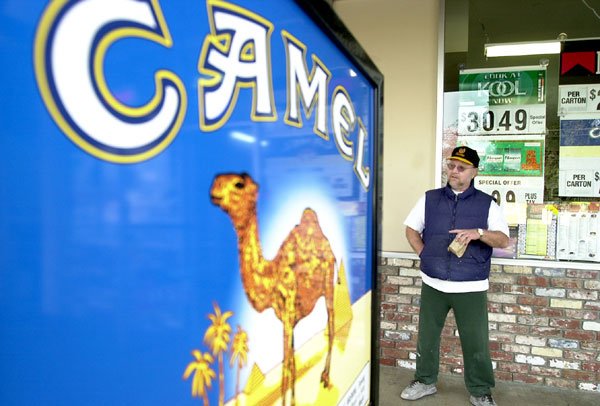GILROY
– As the state finds ways to scrounge up every nickel and penny
from under every proverbial couch cushion it can to erase an
enormous deficit, local taxpayers are realizing the potential
strain of new tax hikes.
GILROY – As the state finds ways to scrounge up every nickel and penny from under every proverbial couch cushion it can to erase an enormous deficit, local taxpayers are realizing the potential strain of new tax hikes.
“As soon as the economy goes down, they go broke,” said Gilroy resident Rodney F. Venable outside of Discount Cigarettes on First Street in the Nob Hill shopping center. “What good does it do to cut taxes when they take it all back?”
Gov. Gray Davis’ proposed budget for the next fiscal year certainly isn’t set in stone, but with a state budget deficit expected to be anywhere from $20 to $35 billion, tax hikes, rising fees and other costs will be sure to trickle down to the average taxpayer.
Davis’ $96.4 billion budget includes more than $20 billion in spending and program cuts this year and next, $8.3 billion in tax increases, hundreds of state layoffs and a massive shift of state health and welfare programs to local governments.
Among Davis’ many plans for finding more budget money are increases in the sales tax, raising the cigarette tax, adding new tax brackets at 10 and 11 percent, upping the cost for a drivers license and vehicle registration fees, cutting school spending and making it more expensive to attend college.
Venable is one of many people who understand what Davis’ tax hikes and other budget increases could do. Every week Venable buys 10 to 12 packs of his brand of cigarettes, Kools – a number he says he cutting down. However, take the $2.30 per pack he pays at Discount Cigarettes and add Davis’ proposed $1.10-per-pack tax hike, and Venable is looking at paying an extra $192.50 per year on cigarettes.
“I’m 54, so my consumption is way down,” he said. “But the price is a deciding factor.”
In all, Davis expects cigarette taxes to make up $1.17 billion of a deficit his administration has estimated to be as high as $35 billion, with other estimates closer to $26 billion.
“Take all the cigarette packs and that only pays for one-thirteenth of the deficit,” Venable said. “Davis isn’t cutting his bureaucracy by 25 percent. But as far as cigarettes go, whatever they can get, go ahead. They’re bad for you.”
Venable called the cigarette tax a “sin tax,” meaning that it was easier to raise cigarette taxes because it is considered a bad habit. But Discount Cigarettes Owner Masoud Niazi also knows what a tax hike could mean for his business, which opened in May.
“Wow!” he exclaimed when hearing about the cigarette tax. “It’s going to basically open up the black market. That’s what happened last time.”
Niazi, who lives in San Jose, said the tax hike would cause more harm than good because people would find ways around the tax by buying their cigarettes out of state or from Mexico.
“It doesn’t help anything. It makes it worse,” he said. “Right now you can save $5 to $10 buying a carton in Nevada.”
Davis’ tax sweeps go far beyond so-called “sin taxes,” however. The proposed budget for next year also includes tuition increases at state universities and a $13 per credit increase for students in the state’s community colleges, including Gavilan.
“I don’t think they should do that,” said Dara Keo, a first-year student at Gavilan. “It’s going to affect a lot of people.”
Keo is taking six credits, hoping to be on his way to getting into the field of biotechnology. With the cost of school credits set to nearly double, he knows that continuing school will be that much harder for his parents, who are paying for his schooling. He said he has tried to enter a program called Extended Opportunity Program and Services, a state-funded program that provides help for low-income students, but he was turned down because the program is full.
“I came from a family where we don’t have much money,” the San Jose native said.
The possibility of increasing cost for schooling along with cuts in the number of classes offered at Gavilan due to budget woes makes Keo nervous about the future.
“Right now, with the other cuts, a lot of people already can’t do what they want to do,” he said. “And that’s without worrying about the money.”
Along with rising fees, a tax increase that is sure to affect everyone is Davis’ proposed 1 percent sales tax hike for next year, which for the average family could mean an additional loss of $200 to $250 per year.
Gilroy resident Jamie Froom wasn’t surprised by the affect sales tax would have, but she said the state should be cautious about rising taxes.
“We should be very careful when we increase taxes,” Froom said as she left with a shopping cart full of food from the Safeway grocery store on First Street. “Usually whenever you increase taxes, it doesn’t get brought back down in the future.”














